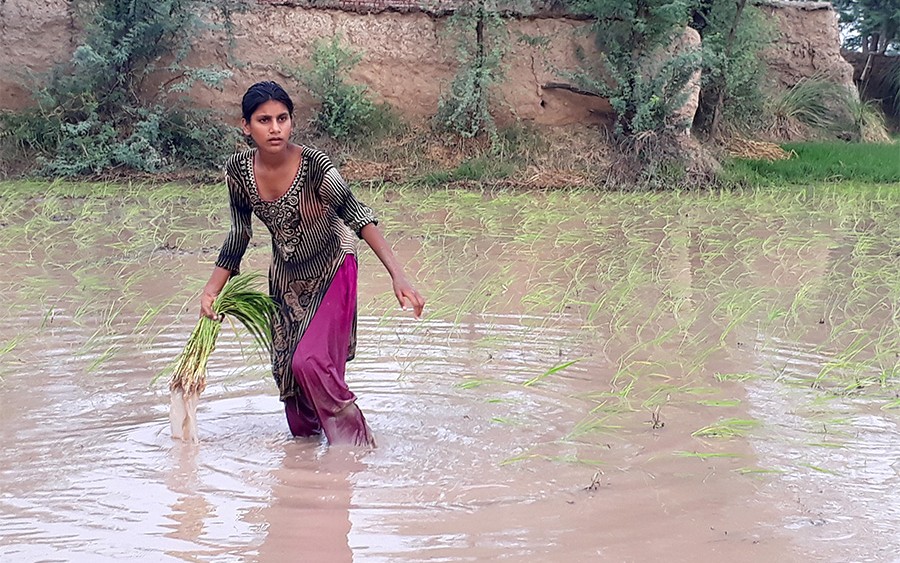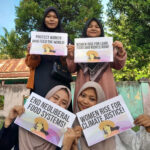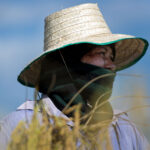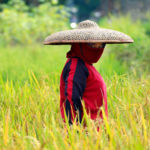IWD 2020: Asian rural women call for food sovereignty and gender justice
The Asian Rural Women’s Coalition (ARWC)—representing peasants, agricultural workers, indigenous women, Dalit women, workers and migrants—joins women across the world today in commemorating International Women’s Day. We recognise and salute rural women across the world who remain resolute in the struggle for food sovereignty and gender justice amid the escalating attacks on women’s rights and the right to land and resources.
On average, women make up about 43 percent of the agricultural labour force in developing countries. As much as 70 percent of employed women in South Asia work in agriculture. Yet, women in agriculture are more likely than men to to hold seasonal, part-time and low-wage jobs. Rural women receive lower wages for the same work, and also work longer hours, in addition to domestic and care responsibilities.
Landlessness due to longstanding social inequalities and the intensification of land and resource grabbing due to imperialist plunder remain the basic problem of Asian rural women. Less than 20 percent of the world’s landholders are women. In India, rural women own only 13 percent of the country’s farmlands, despite making up a third of the agricultural workforce. It is an injustice that rural women do not have access to their own land, despite their invaluable role in food production as bearers of traditional knowledge and innovators. It is an ignominy that their right to produce food and their capacity to determine their own food systems is being continuously undermined by neoliberal policies that facilitate corporate control over agriculture.
Rural women also have less access to basic social services, such as health and education. In Cambodia, for instance, 48 percent of rural women are illiterate compared to 14 percent of rural men. Only one-third of rural women receive prenatal care. According to a study by the World Health Organization, more rural women experience domestic violence, and yet few are able to seek services.
Because conditions of oppression are also conditions for resistance, rural women across the globe have been at the forefront of struggles for people’s rights and gender justice. This has been met with brute repression. PAN Asia Pacific’s Land and Rights Watch 2019 has monitored cases of land-related human rights violations that victimise women. From January to November 2019, 15 women have been subjected to arrests, detention and legal persecution; 15 women have been killed; and 10 women have faced threats, harassment and physical assault due to land conflicts.
Despite such attacks, ARWC member organisations remain steadfast in our commitment to uphold people’s food sovereignty and gender justice. Rural women are rising up and mobilising by the thousands in several Asian countries. In Southern India, women agricultural workers, domestic workers, factory workers, fisher women and tribal women led by the Tamil Nadu Women’s Forum will march to Chennai and hold a Women’s Tribunal to bear witness to the stories of women and hear their demands for just wages, respect for human rights, and an end to gender-based violence. In Cambodia, rural women affected by landgrabbing and forced eviction will hold various activities under the theme, “Rural Women’s Rights are Human Rights,” organised by the Coalition of Cambodian Farmers Community. In the Philippines, rural women led by AMIHAN will rise up against the rice liberalization law and the attacks on farmers. In Sindh province in Pakistan, rural women from Pakistan Kissan Mazdoor Tehreek will join the Global Women’s Strike, carrying the banner, “If Women Stop, the World Stops.”
Rural women rise up!
Stop killing farmers! End gender-based violence!
Uphold food sovereignty! Gender justice now!
Reference: ARWC Secretariat, arwc-secretariat@asianruralwomen.net







